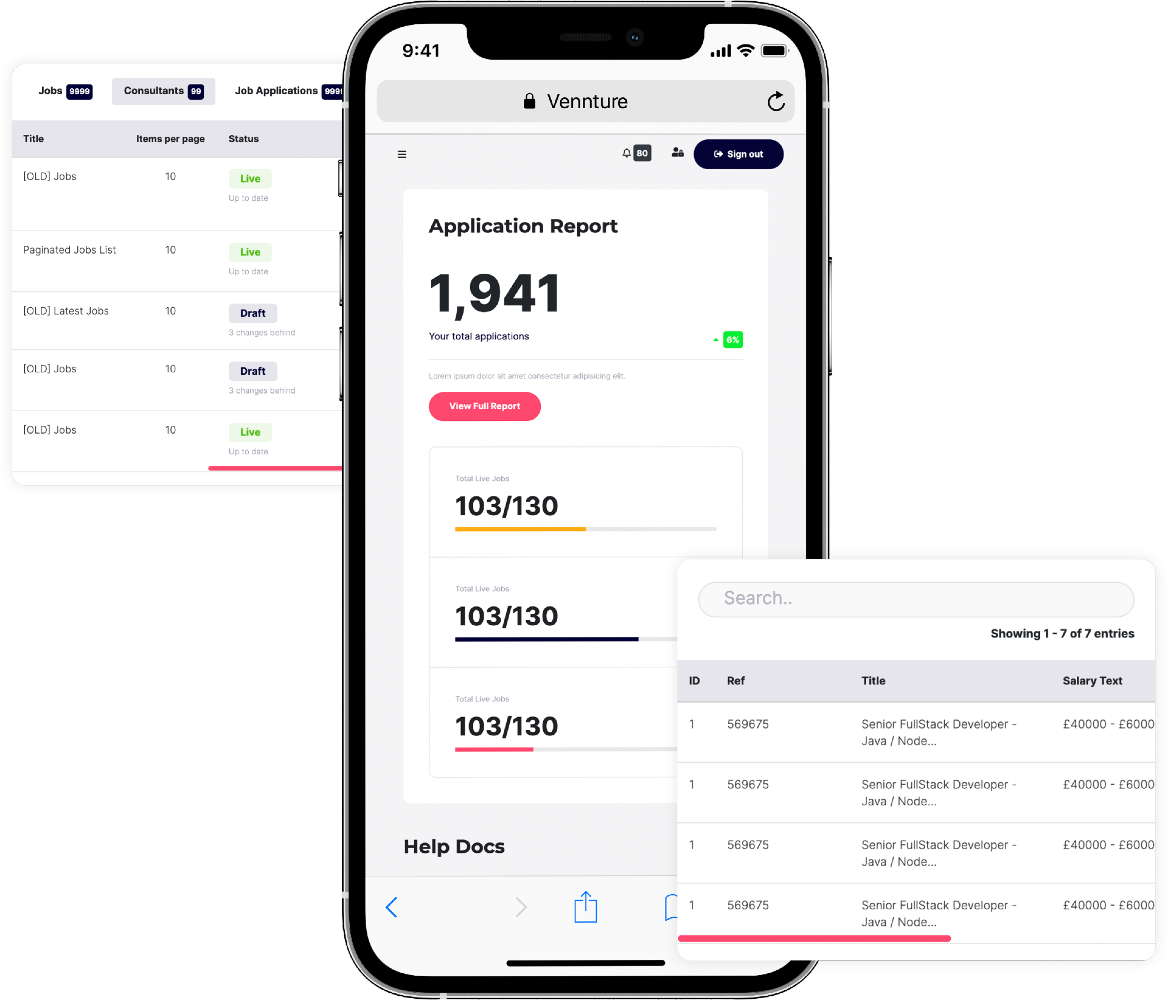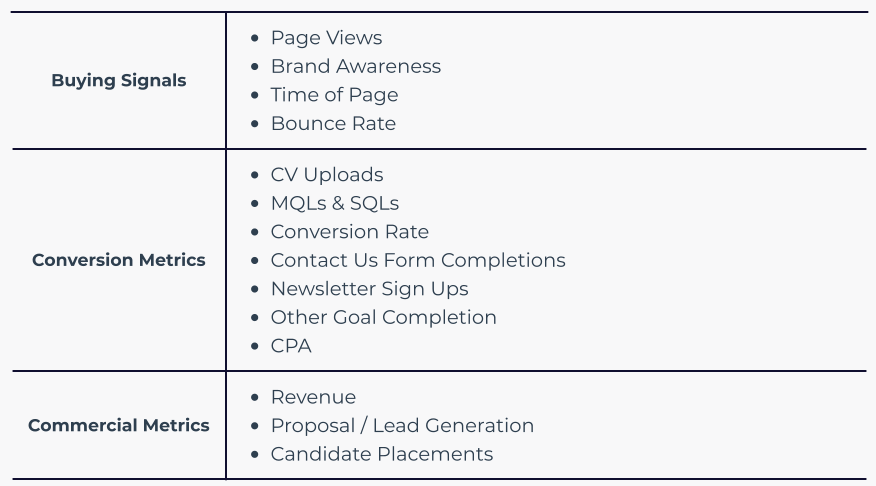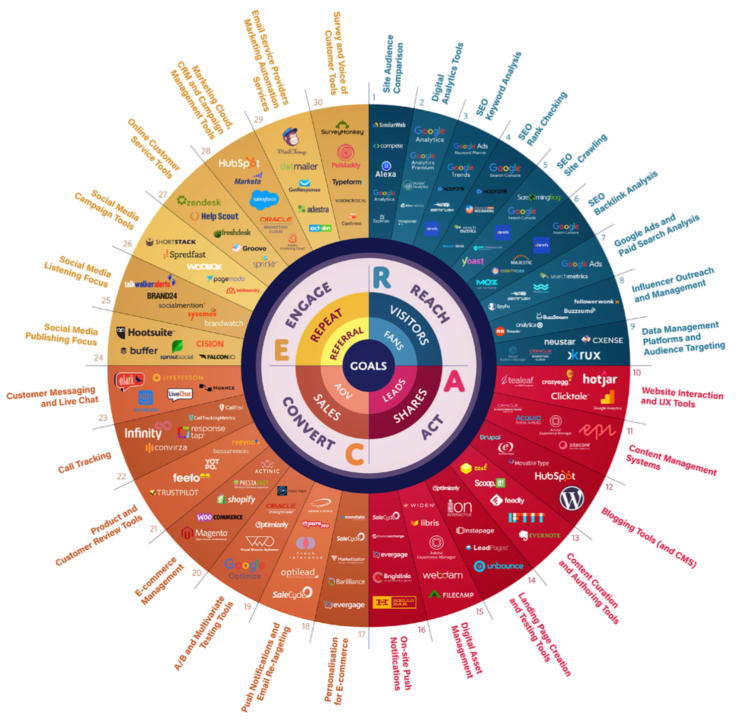Explore our NEW Knowledge Base and Help Desk to find everything you need to attract, engage and convert talent with your Vennture website.
Discover MoreHow and Why You Should Track Recruitment Marketing Results
17 Nov, 20214 minutes
A recruitment marketing strategy is not complete unless you track, analyse and learn from the results. Reporting and interpreting data is key to identifying areas for improvement and attributing leads and conversions to marketing activity.
The recruitment industry can be quick to dismiss the value of recruitment marketing and how a website and strategy can generate business results. But there are some trailblazer brands out there that are leading the way and pushing the boundaries of the traditional sales-led industry.
With insight from our team of strategists and SEO experts, we wanted to dive into how and why recruitment marketing managers should be tracking, reporting and learning from their strategies. We’ll look at metrics, personas, recruitment martech and best practices to help you get more from digital. Let’s get started.
- Why should you be tracking recruitment marketing?
- How can reporting show marketing value?
- Metrics you need to start measuring.
- How can you use reporting to make better recruitment marketing decisions?
- What tools you should use to track recruitment marketing results.
Why should you be tracking recruitment marketing?
What’s the point of implementing a marketing strategy if you’re not going to check whether it’s working? With a few exceptions to the norm, there’s an old fashioned mindset when it comes to marketing within recruitment, with a lot of the industry seeing their website as a showpiece rather than a sales tool that can drive ROI. However, when you track and monitor the results coming through the site, you can begin to make better-informed decisions, improve the candidate experience and give a clear focus for the next quarter.
“Behind every good strategy is a reason why, not only will this improve the quality of your output, but also give you clear goals to measure against.” - Stephanie Tabah, Client Strategy Manager.
Identify what your business is trying to achieve. Whether this is more active and passive candidates to the site, building your internal talent pool or enhancing your employer brand. From this you can build out a reporting structure that shows how your marketing is contributing to the overall success of the company.
In the grand scheme of recruitment marketing your website is just one element within a multi-channel strategy. However, effective reporting will give you detailed and valuable insight into the performance and commercial value of your site as a digital asset and sales tool. You can also get an idea of how your recruitment martech is performing, and how it’s contributing towards your goals. You can learn more about the role of recruitment martech in our guide, download here.

By considering all the touchpoints that face potential candidates and clients on the way to your website you can identify which channels are contributing to applications and lead generation. It may be that you're getting a lot of traffic from job boards, but are these ideal candidates resulting in placements? By identifying the number of candidates that make it to placement and where you're getting top talent from, you can allocate the budget accordingly.
How can reporting show marketing value?
Reporting is about benchmarking. You need a line in the sand to know where you start from. Without this, there is no way of knowing if the optimisation efforts are working. Effective reporting will help you highlight problem areas, missed opportunities and even potential revenue channels you weren’t already aware of.
“Reporting against your objectives is vital to demonstrating the value of marketing. Reporting against the revenue generated is vital to show the value of digital.” - Stephanie Tabah, Client Strategy Manager.
Gaining the most value from reporting is all about understanding the personas of who you are reporting to. If it’s the sales manager you should focus on conversions, revenue and lead generation. In comparison, a marketing manager will care more about brand awareness and website performance.
Be inquisitive and ask yourself ‘What decisions do they need to make and what information can support this?’ Don’t shy away from the bad numbers, instead understand them and think about how they are important. Why are the numbers like this and what can be improved?
For you, the value lies in integrating with wider departments and likewise, sharing what you’ve learnt with others. Working with other departments is crucial if marketing is to add value to your business. Without a clear understanding of your business and financial goals, how can your marketing department help you achieve them?
For other departments such as finance and sales; listen to your marketing teams. They hold so much insight that you could be missing out on.
Metrics you need to start measuring.
Everything has a measurable metric whether it’s your brand, content marketing or social media recruiting.
In reality, the metrics you focus on depends entirely on what your objective is. If your goal is to drive leads, then that’s the KPI you need to drill down into. However, no matter what sector you’re in or what your motivation is, these are the core metrics that should always be on your radar:

These metrics give you vital insight into the quick wins available but also a clear path for long term improvement and better results.
How can you use reporting to make better recruitment marketing decisions?
Understand and interpret what the data is telling you. This is a difficult skill to acquire but it comes with time and practice. At face value, data won't tell you everything at first glance, you need to dig a bit deeper to really interpret what it’s telling you about your users. For every number you see, ask why.
Marketing can be very subjective, it’s easy to go backwards and forwards about certain elements, for example, whether to use “contact us” or “speak to our team”. Test them both and let the data do the talking.
“Always test, never assume. Then look at the data and make an informed decision. Look at the ROI from all your channels, are you investing in the right areas?” - Stephanie Tabah, Client Strategy Manager.
Your point of conversion is only half the story, tracking that conversion to revenue is vital for reporting business results. For example, you’ve seen an increase in candidate applications, but where have they come from and how many went through to placement?
What tools you should use to track recruitment marketing results.
There are so many tools at your disposal for every step of your recruitment marketing journey, from reach to engagement and analytics.

With such a wide variety, it’s hard to know where to start and what platform contributes to which element of your reporting.
Your applicant tracking system gives you direct insight into how candidates are arriving at your site, compared to what you’re getting from job boards. For visibility, Google Search Console offers a detailed analysis of where you are in search results. Whilst Google Analytics provides website engagement and performance tracking.
Your website should not stay stagnant, these tools are at your disposal so you can continue to optimise your destination. If a page isn’t working the way you want it to, change it. Don’t be afraid to edit, amend and update your site.
Using A/B testing and heat mapping allows you to test various scenarios on a page and see how users are responding to these changes. With this, you can know with confidence that a change to your site or page will have a positive impact on your user journey.
The most important thing about martech is that it can all work together. Like our Vennture platform, most tools have the ability to integrate and work in unison to give you the best experience. All our recruitment websites are set up with Google Analytics and goal tracking as standard. Within the Vennture dashboard, we’ve integrated with Google Data Studio to give you a tailored report that identifies key metrics for your business.
Learn more about the role of martech within recruitment and how to optimise your process with the tools at your disposal. Our Recruitment Martech Guide looks at the importance of marketing technology now and in the future. With the recruitment industry dealing with the current talent crisis, we want to help marketing managers to embrace digital and improve your brand's online presence, ultimately leading to increased ROI for your recruitment marketing.
Download our guide here, or speak to an expert for more information on our Vennture platform and recruitment marketing service.



